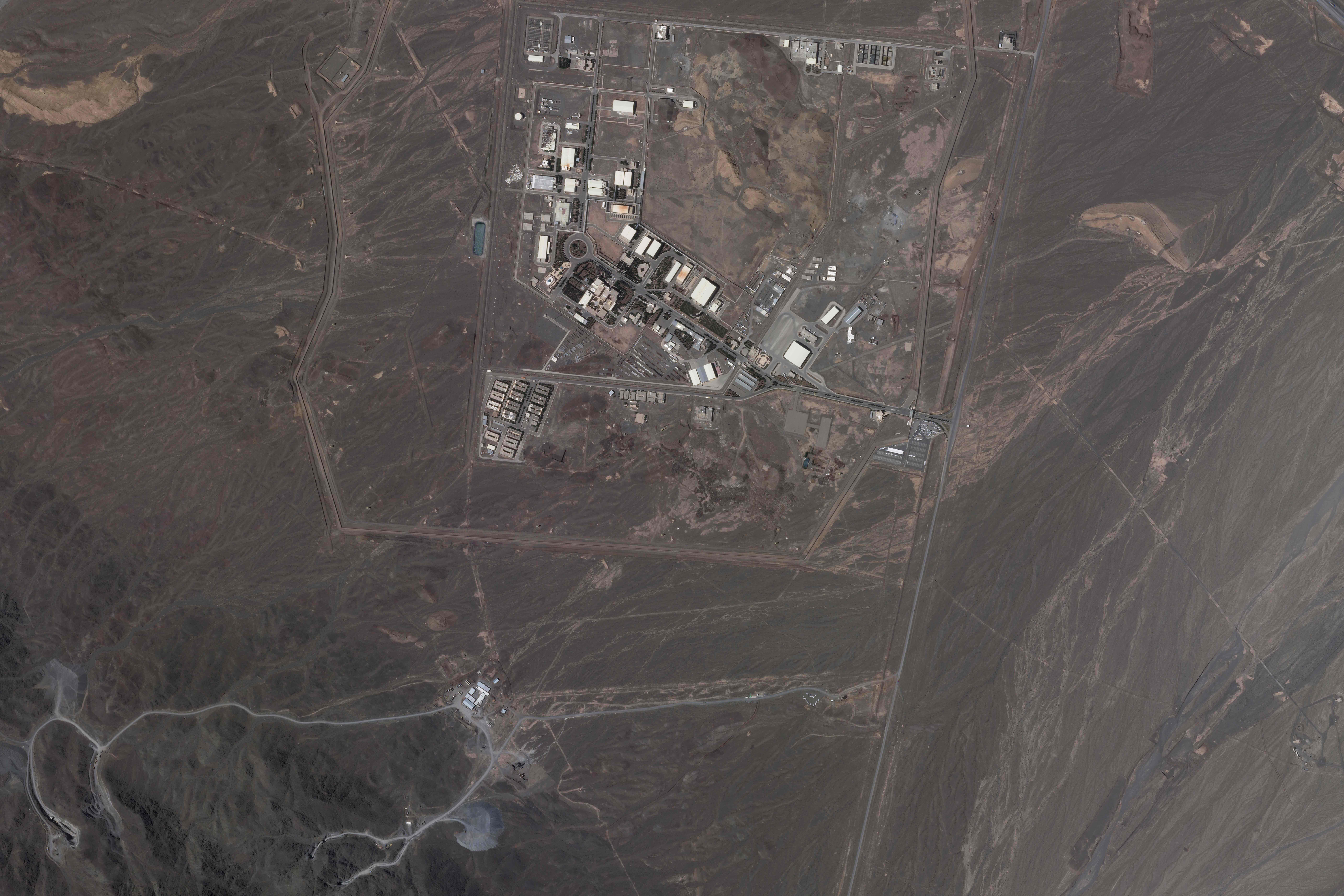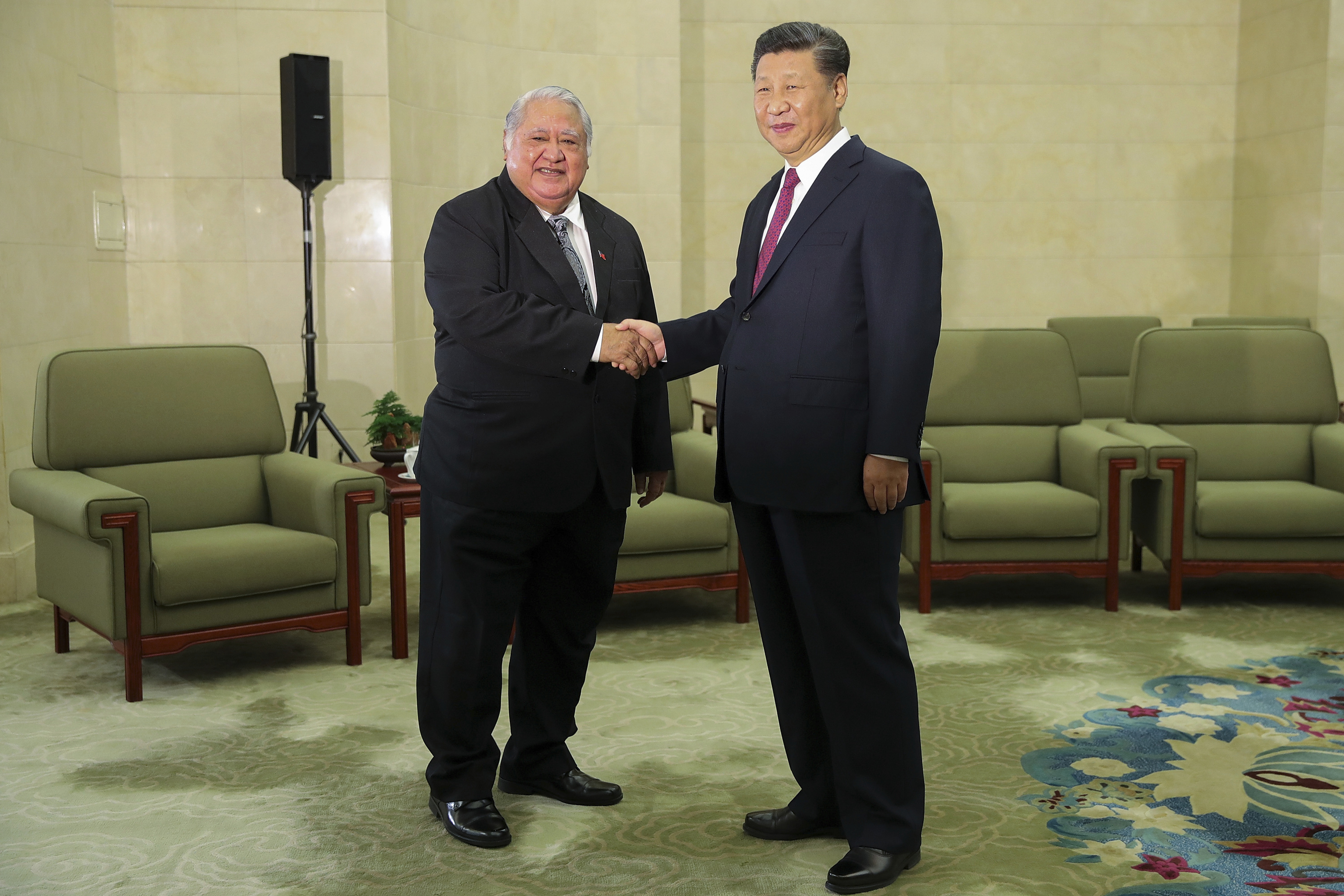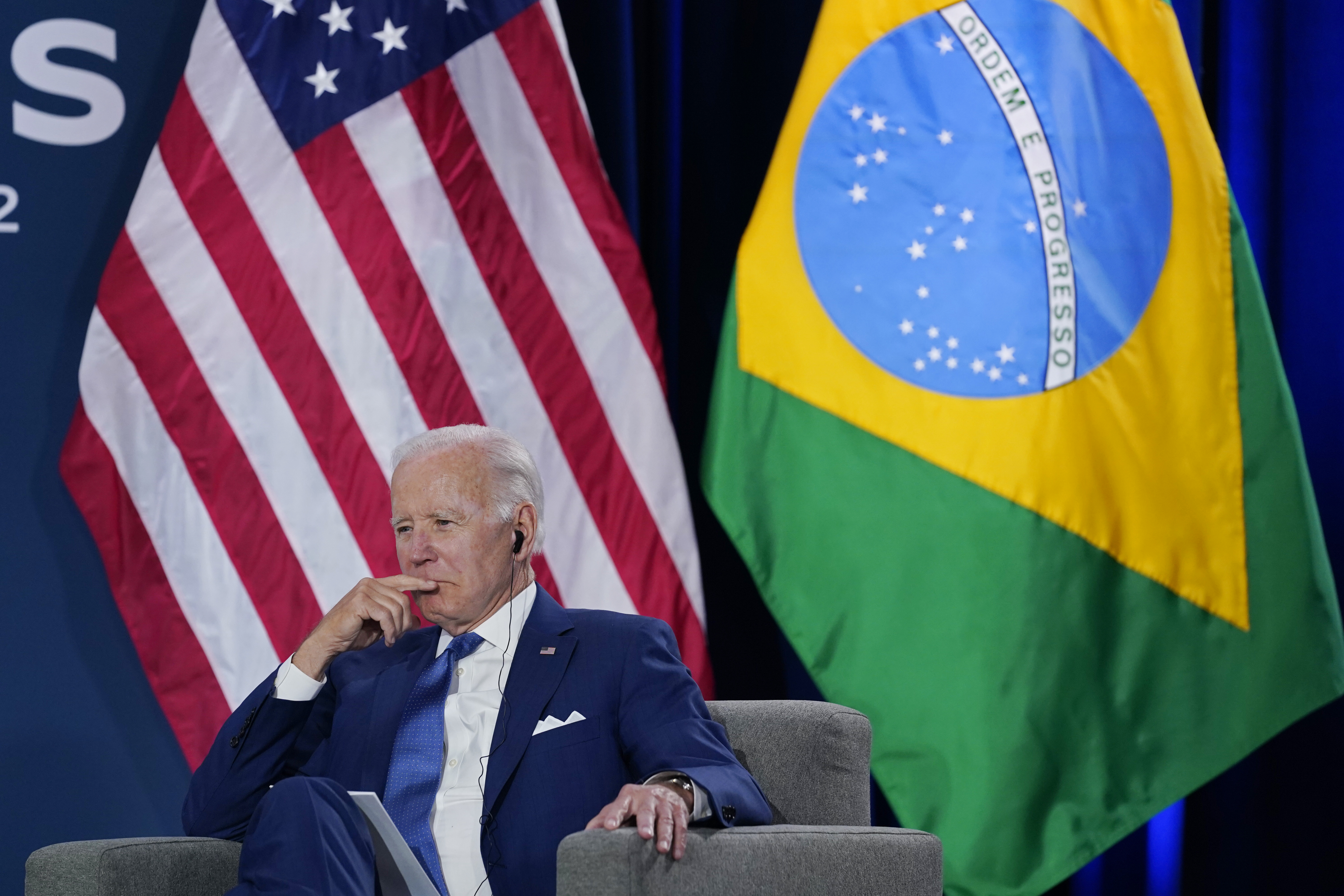Biden juggles principles, pragmatism in stance on autocrats
WASHINGTON (AP) — As a candidate for president, Joe Biden was not shy about calling out dictators and authoritarian leaders as he anchored his foreign policy in the idea that the world is in a battle between democracy and autocracy.
But Biden’s governing approach as president has been far less black and white as he tries to balance such high-minded principles with the tug toward pragmatism in a world scrambled by the economic fallout from Russia’s invasion of Ukraine, concerns about China’s global ambitions, heightened tensions about Iran’s advancing nuclear program and more.
Those crosscurrents were evident this past week when Biden played host at the Summit of the Americas in Los Angeles, where his decision to exclude leaders he considers dictators generated considerable drama and prompted a number of other world leaders to boycott the event.
“We don’t always agree on everything, but because we’re democracies, we work through our disagreements with mutual respect and dialogue,” Biden told summit participants as he tried to smooth over the disputes.
Even as Biden was excluding a trio of leaders from the gathering, his national security team was making preparations for a possible visit to Saudi Arabia, an oil-rich kingdom that the president labeled a “pariah” state in the early days of his successful White House run.
After Biden took office, his administration made clear the president would avoid direct engagement with the country’s de facto leader, Crown Prince Mohammed bin Salman, after US intelligence officials concluded that he likely approved the 2018 killing and dismemberment of US-based journalist Jamal Khashoggi. If the visit to Saudi Arabia goes forward as anticipated, Biden is expected to meet with Mohammed.
The tough talk by Biden during the campaign — and earlier in his presidency — toward the Saudis was part of a broader message he pitched to Americans: The days of blank checks for dictators and strongmen must end if the United States is to have credibility on the world stage.
Of late, though, such sharply principled rhetoric has given way to a greater nod to realpolitik.
At a time of skyrocketing prices at the gas pump, an increasingly fragile situation in the Middle East and perpetual concern that China is expanding its global footprint, Biden and his national security team have determined that freezing out the Saudis is simply not tenable, according to a person familiar with White House thinking on the yet-to-be-finalized Saudi visit who spoke only on condition of anonymity.
The blurred lines over with whom the US will and will not engage have left the White House facing a difficult question: How can the president cite principle for spurning engagement with dictators in his own backyard, even as he considers paying a call on Saudi officials who have used mass arrests and macabre violence to squelch dissent?
“President Biden committed to putting human rights and democracy at the heart of our foreign policy. It is,” Secretary of State Antony Blinken told reporters at a summit closing news conference Friday. “That doesn’t mean that it’s the totality.”
But Edward Frantz, a presidential historian at the University of Indianapolis, sees signs that Biden “has fallen into the same trap” as his predecessors when it comes to the Middle East.
President Jimmy Carter, who said human rights were central to his foreign policy, looked past the blood-thirsty reputation of the shah of Iran, Mohammed Reza Pahlavi. President George HW Bush held off supporting an uprising against Saddam Hussein as his advisers warned Iraq would plunge into civil war without the strongman. US administrations from Presidents Ronald Reagan to Barack Obama overlooked the Hosni Mubarak government’s torture and arbitrary detention in Egypt for the sake of a reliable strategic partner in a difficult corner of the world.
“It’s notable that Biden is being forced from his position on the Saudis in large part because he held a principled stance on Ukraine,” Frantz said. “But it’s hard not to see the same patterns here as have been established over the last 80 years.”
Human rights advocacy groups and even some of the president’s Democratic allies are warning Biden that a Saudi visit could be perilous.
Six House Democrats, including the chairman of the House Intelligence Committee, Rep. Adam Schiff, of California, wrote to Biden this past week that if he decides to move forward with the visit, he must follow through on a pledge of “recalibrating that relationship to serve America’s national interests” and press Saudi officials on oil production, human rights and reported ballistic missile sales by China to the kingdom.
“President Biden should recognize that any meeting with a foreign official provides them instant credibility on a global stage, whether intended or not,” said Lama Fakih, Middle East director at Human Rights Watch. “Meeting Mohammed bin Salman without human rights commitments would vindicate Saudi leaders who believe there are no consequences for egregious rights violations.”
Even as Biden was warming to the Saudis, he was committing to keeping the Western Hemisphere’s dictators out of the summit in his own backyard.
The decision was seen as heavy-handed by some allies. Mexico’s president, Andrés Manuel López Obrador, and leaders of Honduras, El Salvador, Guatemala, and Bolivia all opted to skip the summit over Biden’s decision to exclude the leaders of Cuba, Venezuela and Nicaragua.
Argentina’s president, Alberto Fernández, and Belize’s prime minister, John Briceño, were among those to show up but publicly criticize Biden’s move.
“Geography, not politics, defines the Americas,” Briceño said.
FILE – In this photo released by Saudi Royal Palace, Saudi Crown Prince Mohammed bin Salman, speaks during the Gulf Cooperation Council (GCC) Summit in Riyadh, Saudi Arabia, Dec. 14, 2021. After President Joe Biden took office, his administration made clear the president would avoid direct engagement with the country’s de facto leader, Crown Prince Mohammed bin Salman, after US intelligence officials concluded that he likely approved the 2018 killing and dismemberment of US based journalist Jamal Khashoggi. (Bandar Aljaloud/Saudi Royal Palace via AP, File)

FILE – Turkey’s President Recep Tayyip Erdogan arrives for a ceremony, in Ankara, Turkey on May 16, 2022. Within a two-week span, Turkey’s president has caused a stir by throwing a wrench in Sweden and Finland’s historic bid to join the NATO alliance , lashed out at NATO-ally Greece and announced plans for a new incursion into Syria. The Turkish leader appears to be using Turkey’s power to veto NATO’s expansion as an opportunity to air a variety of grievances against the Western nations and to force them to take action against Kurdish militants and other groups that Turkey views as terrorists. (AP Photo/Burhan Ozbilici, File)

FILE – This satellite image from Planet Labs PBC shows Iran’s Natanz nuclear site, as well as ongoing construction to expand the facility in a nearby mountain, near Natanz, Iran, May 9, 2022. Iran started removing 27 surveillance cameras from nuclear sites across the country, the UN nuclear watchdog said Thursday, June 9, 2022, further blinding the agency’s inspectors from being able to track Tehran’s uranium enrichment that is now closer than ever to weapons-grade levels. The UN’s nuclear watchdog also said Iran plans to install two new cascades of advanced centrifuges at Natanz that will allow Tehran to rapidly enrich more uranium. (Planet Labs PBC via AP, File)

FILE – Samoa Prime Minister Tuilaepa Lupesoliai Sailele Malielegaoi, left, shakes hands with Chinese President Xi Jinping at the Great Hall of the People Tuesday, Sept. 18, 2018, in Beijing. China wants 10 small Pacific nations to endorse a sweeping agreement covering everything from security to fisheries in what one leader warns is a “game-changing” bid by Beijing to wrest control of the region. (Lintao Zhang/Pool Photo via AP, File)

FILE – President Joe Biden listens at a meeting with Brazilian President Jair Bolsonaro during the Summit of the Americas, June 9, 2022, in Los Angeles. This past week as Biden played host at the Summit of the Americas his decision to exclude leaders he considers dictators generated considerable drama and prompted a number of other world leaders to boycott the event. (AP Photo/Evan Vucci, File)

FILE – An inspector of the International Atomic Energy Agency sets up surveillance equipment, at the Uranium Conversion Facility of Iran, just outside the city of Isfahan, Iran, Aug. 8, 2005. Iran turned off two surveillance cameras of the United Nations’ nuclear watchdog that monitored one of its atomic sites, state television reported Wednesday, June 8, 2022. The report did not identify the site. (AP Photo/Mehdi Ghasemi, ISNA, File )



Comments are closed.